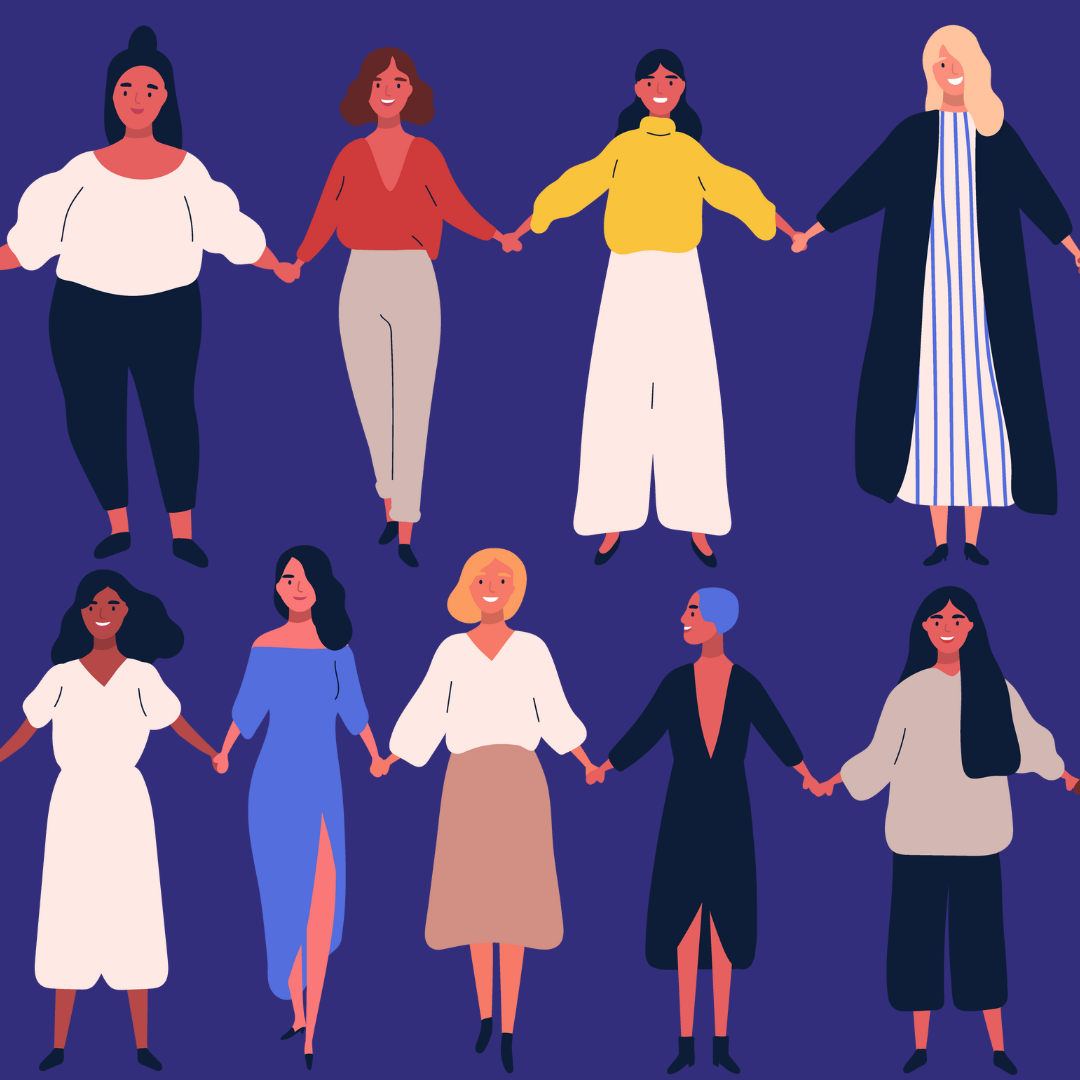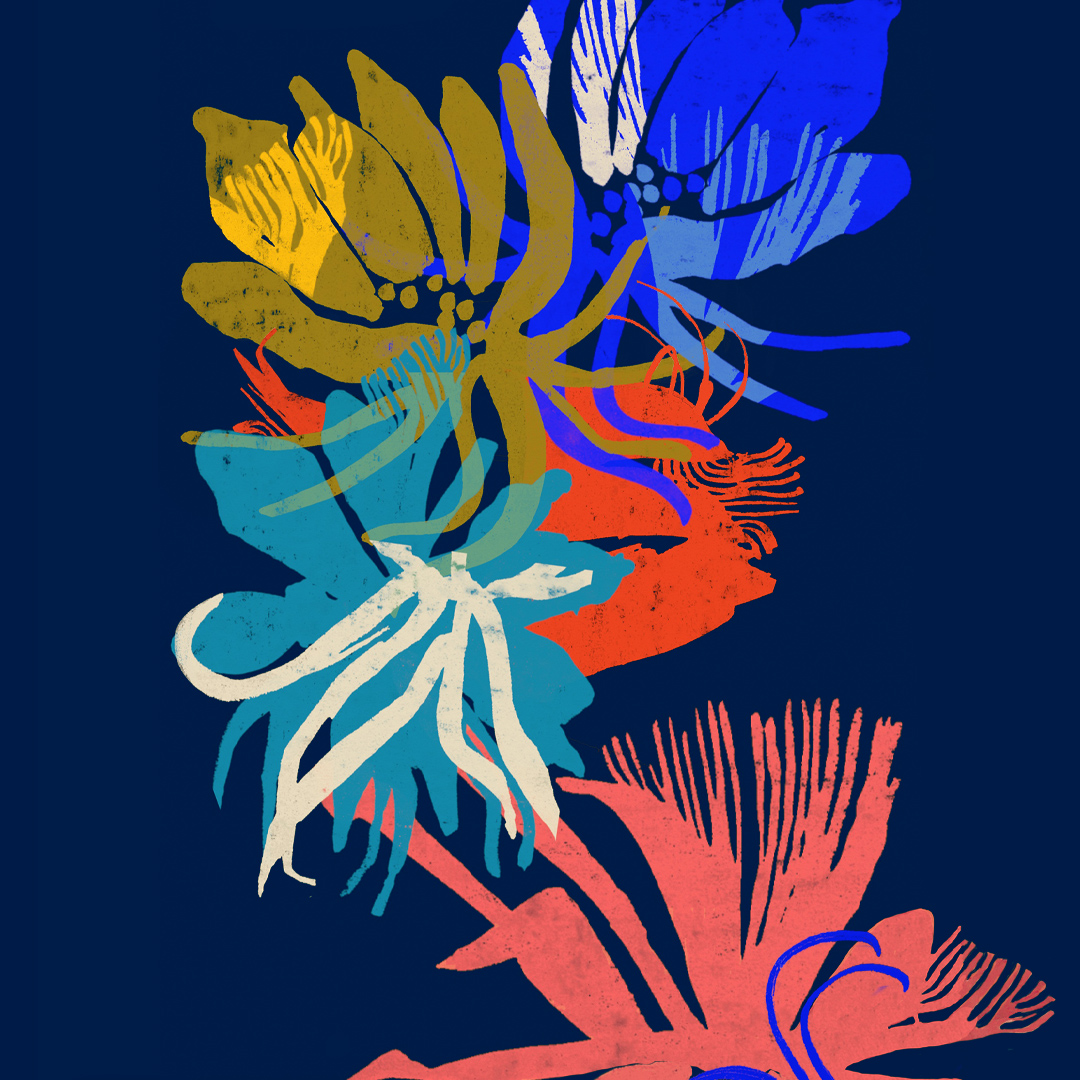Read an Excerpt from Perpetual West by Mesha Maren
 Author Mesha Maren follows up her critically acclaimed debut Sugar Run with an ambitious and totally engaging new novel in Perpetual West, coming available January 25, 2022. Exploring the impact of cultural influence and geographic differences, Perpetual West builds a suspenseful story of how harrowing events can bring our true selves to the surface.
Author Mesha Maren follows up her critically acclaimed debut Sugar Run with an ambitious and totally engaging new novel in Perpetual West, coming available January 25, 2022. Exploring the impact of cultural influence and geographic differences, Perpetual West builds a suspenseful story of how harrowing events can bring our true selves to the surface.
Read this excerpt from Perpetual West and then pre-order your copy now.
…
Alex took a right on Mesa Avenue and drove up the hill into the no-man’s-land of box stores and college dorms. A left on University Drive and the Sierra de Juárez swung into view, pale brown and lunar, with the huge white words painted down her flank—la biblia es la verdad, leela—each letter looming thirteen stories tall over the great dusty bowl of the city: The Bible Is the Truth, Read It. He’d come so far from his Bible-reading days only to move to a place where those words shouted out at him every morning. Had been shouting at him always, maybe. He wondered when they had been painted, if they’d been there, staring down at him from the very beginning, even before he’d been adopted.
The university campus resembled a prison compound. Bhutanese architecture, Alex had been told, to complement the desert landscape, but to him the high, nearly windowless walls looked more like a penitentiary. He pulled into a brown gravel parking lot and stared through the windshield at the spiked arms of an ocotillo, shaking as a pigeon lifted and took flight.
He still had an hour before his meeting with Dr. Nelson. He knew he should be nervous, but lately his brain had been whirring too much to care about their discussions of ethnographic approaches. Two weeks away from his thesis proposal deadline and his whole idea had flipped, what was once a focus on the psychogeography of accountability—the way the physical separation of the border let American entities shift blame—had given way to the slam of shoulders against the wrestling mat. Ever since meeting Mateo, he didn’t care to write about anything but lucha libre.
It was not advisable to change topics at this point in the semester and he could already see Dr. Nelson’s crimped lip, but he knew too that they loved you more when you failed a little first and then overachieved. He’d learned this early. Redemption was much more moving for the audience than no sin to begin with. This knowledge had twinned with an awareness of the slippery limits of his parents’ love. All the adults around him, the entire church community: so conditional. He’d been brought to West Virginia from that strange, parched place where Jim and Noreen Walker had gone as missionaries—a small brown trophy to show for their time in Mexico. But he was suspect as soon as he was not a baby anymore. He slept too much, ate too much, sweated too much. His body letting loose loud alarms all in and around him. And then, when he’d taken up the call and started preaching at age thirteen, their love surged again, overboard. Doubled and tripled for the fact that he had been suspect. A throwaway babe from a throwaway place, reborn.
He got out of the car and followed the road around past the big fortress of a library. A kid shuffled in front of him down the sidewalk, slumped inside an oversized Miner’s sweatshirt.
“Hey,” Alex called. “You got a cigarette I can bum?”
Across from the library and down a flight of concrete steps there was a pedestrian bridge to a parking deck that overlooked the blurring stripes of the border highway. Alex ashed his cigarette on the railing and turned west where, two miles away but clearly visible in the thin winter air, the smokestacks of the ASARCO smelter, the starting point for his original thesis, sat like some dystopian Soviet relic. The old Guggenheim copper and iron extracting plant had been closed for five years now, but Alex had found a newspaper interview with a former worker who admitted that the higher-ups had instructed them, whenever the wind turned south toward Mexico, to crank production up, gushing dirty yellow smoke directly into Juárez. That was where Alex’s thesis idea had begun, an attempt to show how the border can serve as a moral stopping point: my compassion does not go beyond this invisible line. The same with the maquiladora owners who’d relocated their factories from El Paso to Juárez, only a few miles away geographically but beyond the moral boundary. And even the US Attorney’s Office had allowed a cartel informant, paid by the US Immigration and Customs Enforcement, to commit murder. They’d allowed him to do it, record it, get paid, and do it again less than ten miles from the ICE office, but notably not in the United States.
It was so similar to what had happened in West Virginia, and maybe that was why he had been drawn to it at first. Both places had been stretched thin, cadavered for their resources and labor and then abandoned, their people rendered subhuman in the national dialogue. In West Virginia it had been mining, and here too that was still happening: just a few weeks ago, one of Alex’s professors had mentioned that a colleague, an archaeology professor, had been down in the Samalayuca dunes reserve and had run into a group of Americans test-boring for copper.
In his first few months in El Paso, Alex had followed the stories of the yellow ASARCO smoke across the line into Colonia Ladrillera, where the streets were named like twisted jokes: Calle Nadadores—Street of the Swimmers—running beside the arsenic-ridden dribble of the Río Bravo-Grande. And he could see Ladrillera now, from this side, the concrete block, curling sheet metal and wooden pallets punctuated by the flapping of a blue tarp roof, but ASARCO’s effects no longer drew him in. His whole idea, those words, psychogeography of accountability and morality, sounded like just that—words—something to say in class or at a dinner party, but what was he really trying to talk about? How we other-ize people, separate ourselves from them, and this allows us to stop feeling compassion. There was nothing new in that idea.
What was going on over there—right there, where the smoke of trash fires rose now in a cloud so close that he could almost taste it—was something else, something bigger than borders and governments and corporations, something ancient and enormous, a rising insistence on the valuelessness of human lives. Aided and abetted by the United States—this was a new kind of dirty war, one where the deaths could be blamed on the cartels instead of government killing squads. But where did those lines bleed? Who, in the end, benefited from the dead women, dead campesinos, dead cops, dead journalists? And what happened to someone who grew up in this? What he wanted to write about was the way a young man could slide a mask over his face, step into the wrestling ring, and blur out his class, his background, his name. In the trust-pain struggle with another man, he could pantomime the death that dogged him daily and rise through it. See these boys, here in the ring they could be anything, Mateo had said in his first interview with Alex, his arm sweeping out to encompass the ring, the arena, the city. This is a factory of dreams.
The sun set at 5:00 p.m. and the cold crept in as Alex waited for the downtown bus, feeling the tug of Juárez and the empty space where guilt should have been. Elana had called while he was napping, after his meeting with Dr. Nelson, and now her voice was trapped inside his cell phone and he could replay it, poke and prod himself with it, as often as he wanted. Hey, Ali, I made it. And I remembered to call you. Bet you thought I wouldn’t. Okay, love you. Dad should be here in a few minutes to pick me up. She expected him to call her back and ask how the flight was and tell her about his meeting with Dr. Nelson, if she even remembered his meeting. He left his phone in the apartment and headed to the bus stop instead. Even if she did remember to ask, she wouldn’t really be listening. She was never really listening to him these days. And he didn’t see the point in talking about it. The meeting had gone fine, as fine as a complete-changing-of-the-thesis-at-the-last-minute meeting could go. Dr. Nelson had asked the questions that Anglos always asked about lucha libre. Is it just like American wrestling? Which of course it wasn’t exactly, but the roots of it did come from the US, brought down by Salvador Lutteroth, who had experienced his first wrestling matches right here in El Paso in the 1930s. Right, but is it really like American wrestling? everyone asked. No one wanted a history lesson. What they wanted to know was if it was “totally fake.” Which was missing the point entirely. The prefight knowledge of who would win an individual match didn’t matter to the wrestler. What mattered was the long arc of his story line. Who rose and who fell across the stretch of many months. They were athletes absolutely, but what they were participating in was theater.
Alex boarded the bus and it whooshed out of the barrenness of the north neighborhoods, scrubby juniper yards and chain-link fences, and into the slow-motion decay of downtown. The San Jacinto plaza was empty except for a paper Subway cup skidding in the wind. Above it, the flat glass eyes of WestStar, Chase, Wells Fargo, and Bank of America stared lidless over the quiet failure of the Plaza Hotel, Rican Furniture, Bassett Tower. The Art Deco buildings—huge old fossils with buttercream frosting–dripped doorways covered in plywood—looking out of place like someone’s grandmother, refusing to dress down no matter the place.
South of Paisano Drive, the city shifted and came awake. Sidewalks busy with families, bicycles, young couples, girls in puffy winter coats and red lipstick. Warehouses with their metal gates rolled back and goods spilling out into the street. A bustle that Alex could only associate with the flea markets he’d known in West Virginia. Everything $1, perfumeria, House of Beauty, sexy jeans, toda boda, Best Brands Now, Anny’s Casa de Fashion, trajes de señora, vestidos de fiesta, unitalla plus, blusas, pantalones, botas. And the warm yellow interiors of cafes with handwritten signs: gorditas, burritos, french fry, consomé de pollo, bistec, tacos de cabeza, lengua, chicharrón.
The bus took a right on Fourth and wove its way to the Central Transit Station at Santa Fe, where it emptied, everyone shuffling off, their grocery bags in hand, cowboy boots stepping into the blue-black cold. Months after moving here, it still thrilled Alex how he visually fit in. He could feel eyes on his skin and how they glanced off, slid, and kept right on moving. He walked toward the border with no second looks. Of course, when he opened his mouth, everything changed. His accent was not right and the interaction would shift, but that discomfort felt deserved, or maybe not deserved but useful, like this experience could burnish him into something new, not like the discomfort of being brown skinned and foreign born in West Virginia. Elana didn’t understand why he wanted to spend so much time in Juárez when El Paso was full of people like him who looked Mexican but didn’t speak perfect Spanish. It was the friction that he liked, though. He couldn’t pick up where he had left off as an infant, no, of course not, he would never be Mexican like that, but here in Juárez he felt like he was being etched into a more precise version of himself. Instead of carrying around with him the face of a country and people he did not know, he was joining himself here—not finding himself, that was stupid and cheesy, no, he was joining himself.
Back at Hall College, he’d had to answer over and over again the question “Where are you from?” and each time, even before he could finish saying Render, West Virginia, his teachers, classmates, acquaintances would interrupt with “No, really, where are you really from?” As if he were tricking them, lying, playing some sort of joke. If he said I don’t remember Mexico, not even a little bit, he was met with a snort, a laugh, a shrug.
At the Puente Santa Fe, he dropped his quarter in the turnstile. Twenty-five cents to leave the USA, ten cents to return. The vendors on the bridge were selling knit hats—toboggans, they were called back in West Virginia, but no one ever understood what he meant when he said that here—gloves, newspapers, sodas, and one enterprising woman, propped up under a no vendedores sign, had a huge thermos of coffee and stack of Styrofoam cups.
At the end of the bridge a soldier was posted in a tiny glass and cinder-block room, and past that, the walkway fanned out into a wide ramp and everyone who was snugged together in the crossing spread free and Alex stopped. He eyed the elote vendor across the street with his brazier of coals and bottles of condiments, the Diaro boy in the median, the taxista waving a hand. He’d waited here like this more than a dozen times over the past three months. Sometimes Mateo was there already, leaned up against the railing at the bottom of the ramp, but more often Alex waited for him. Once for an hour and forty minutes. He gripped the handrail and released. People spilled out from behind him—a baby stroller, shopping cart, quick passing feet going home, going right where they wanted to, full of direction. He leaned against the rail, tried to see without looking, to not appear desperate or seeking. Across the street, darkened windows of a dental office gleamed, and beyond: the streaming neon of money-changing stations, revving engines and constant horns, the steady crawl of city buses, a police pickup thrashing by with lights and sirens, and then, through a break in the traffic, he saw Mateo’s face. Mateo’s dark eyes focused on him.
And Alex was moving now, a feeling like a drawstring being pulled through his guts—down the ramp, around a bicycle, squeezing between bumpers. He did not take his eyes off Mateo, as if to look away, even for his own safety, might make him disappear.
“You’re just watching me?” Alex said before he’d even finished crossing the street. “How long were you gonna let me stand there?” Everything—the traffic, the horns, the buses—was small now, fuzzy, inconsequential and out of focus.
A smile spread full across Mateo’s face.
“You’re more beautiful when you don’t know I’m watching.”
He stopped, felt Mateo’s words land, then lift, felt his cheeks flush. More beautiful when you don’t know. He must be mistranslating a little. He looked at Mateo and a dizziness zipped up from his stomach.
Mateo reached out, pulled him onto the sidewalk. A horn honked. Engines behind them. “You thought I forgot?”
This, more than anything, was their language, their greeting. Did you forget? Could you? I’m here, am I not? Again? When can I see you?
The sidewalk crushed with movement, a woman with a wheeled basket, butting, insistent. Permiso, permiso. Mateo put a hand on Alex’s shoulder and guided him over against the building. “You’re hungry?” he said, his eyes searching Alex’s face, and then, before Alex could respond, “Let’s get a drink.”
He took his hand off Alex’s shoulder and Alex felt the lack of weight where the warm pressure had been. Before he could agree to anything, Mateo had turned and headed down Gardenias. They walked single file, away from the neon of Avenida Juárez and into the streaming headlights of city buses and taxis. The silhouettes of passing people temporarily blocked the beams of light, and when Alex glanced up at Mateo again, it looked like Mateo was limping.
“Hey.” Alex darted around a man in a broad-brimmed cowboy hat, and under the light of the pharmacia 24/7 sign, he saw that yes, Mateo was practically dragging his left leg. “You’re . . .” He realized that he could not immediately think of the verb “to limp,” and then when it did flash into his mind, he paused: cojear, he felt sure that was the verb, but it sounded suddenly so much like cojer, to fuck. Estas cojeando . . . cojiendo. “Your leg,” he said instead, “what happened to your leg?”
Mateo halted and turned toward the wall to light a cigarette. Hand cupped, smoke leaking out between his fingers. “In Acapulco,” he said. “Stupid fucking Hijo del Diablo hits me with the metal chair, blam, down on my legs and my fucking knee is motherfucked.” He started walking again but slower now, keeping his eyes on Alex’s face, their arms brushing against each other. “There’s a balloon in your knee, you know, like under the kneecap. It exploded. The doctor had a needle this fucking long, he put some kind of solution in there. Here, feel how swollen.” He paused and rolled his jeans up. People swerved around them on the sidewalk where they both bent in a sudden, intimate focus. The knee was wrapped with a snarl of yellowed rags and Alex couldn’t tell if the mound around it was the swelling or just the immense amount of bandages; the bandages did not look particularly clean. Mateo grabbed his hand. “Here, feel,” he said, and then, looking up, still holding Alex’s hand, “Damn, your fingers are cold.” He shifted and his jeans rolled down, catching on the bandages. “You need a better coat, some gloves or something.” He lifted his own jacket and pressed Alex’s hand up under it, against the heat of his stomach.
…




